Your cart is currently empty!
Month: July 2024
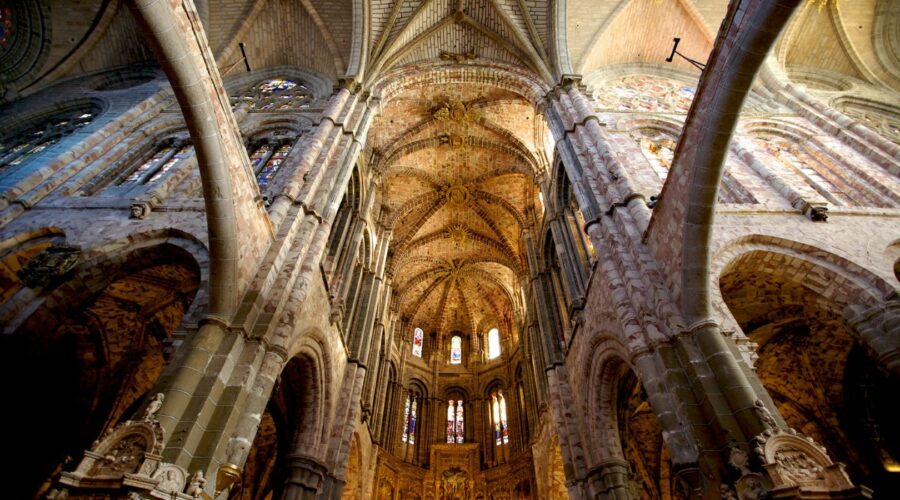
Illuminate Your Faith: A Comprehensive Guide to the Paschal Candle
Introduction
The Paschal candle, a symbol of Christ’s resurrection, holds a significant place in the Easter liturgy. Its presence on the altar during the Easter season serves as a reminder of Christ’s victory over death and the hope it brings to believers.
History and Symbolism
History
The tradition of using a Paschal candle dates back to the early Church in the 4th century. It was originally used as a source of light in dark churches during the Easter Vigil service. Over time, it became a symbol of Christ’s presence and victory.
Symbolism
The Paschal candle represents various aspects of Christ’s resurrection:
- Light: Christ as the “Light of the World” (John 8:12)
- Alpha and Omega: The Greek letters etched on the candle, symbolizing the beginning and the end (Revelation 1:8)
- Lamb of God: The image of the lamb, representing Christ’s sacrificial love (Revelation 5:6)
- Cross: Engraved on the candle, representing Christ’s victory over death
Blessing and Illumination
The Paschal candle is blessed at the beginning of the Easter Vigil service. A deacon or priest prays over it, invoking God’s blessing and asking for the candle to be a symbol of Christ’s light in the world.
The candle is then illuminated by the priest using a new fire, symbolizing the resurrection of Christ from the darkness of the tomb.
Use in the Easter Liturgy
The Paschal candle is prominently displayed on the altar throughout the Easter season. It is used for the following purposes:
- Processions: The candle leads the procession into and out of the church during the Easter Vigil and Easter Sunday services.
- Alleluia Chant: The deacon carries the Paschal candle during the singing of the “Alleluia” following the Gospel reading at Easter Mass.
- Baptismal Ceremonies: The candle is used to light the baptismal water, symbolizing the light of Christ entering the lives of those being baptized.
Extinguishing and Extinguishing
Extinguishing
The Paschal candle is extinguished at the end of the Easter season, typically on the eve of Pentecost. This symbolizes the end of the joyful Easter celebration and the transition to ordinary time.
Conclusion
The Paschal candle serves as a powerful symbol of hope, victory, and the presence of Christ among us. It reminds us that even in the darkest times, Christ’s light can guide us and bring us to new life. As we celebrate the Easter season, let us draw inspiration from the Paschal candle and reflect on the transformative power of Christ’s resurrection.
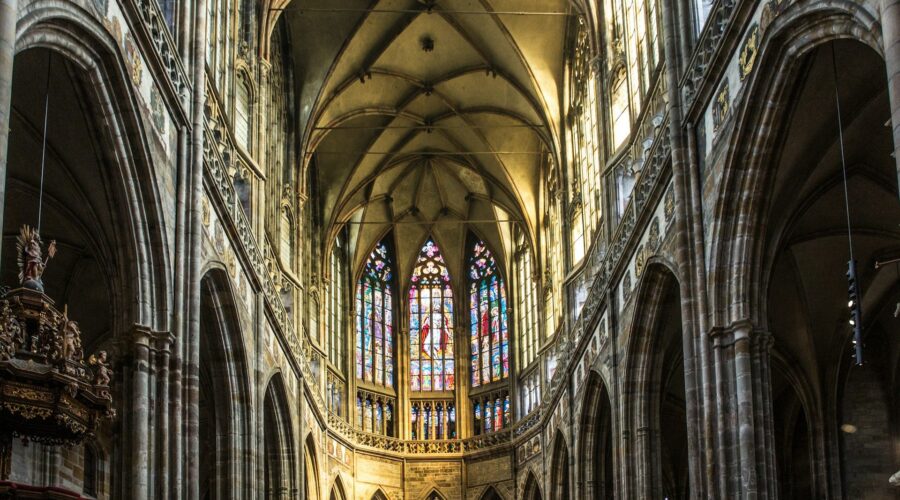
Grace Community Church: A Guide to John MacArthur’s Controversial Ministry
Introduction
Grace Community Church (GCC) is an independent, fundamentalist Baptist megachurch located in Sun Valley, California. It is led by controversial pastor John MacArthur, who has been both praised and criticized for his conservative views on theology, culture, and politics.
John MacArthur: Biography and Beliefs
Early Life and Ministry
John MacArthur was born in 1939 and grew up in Los Angeles. He became a Christian at a young age and began preaching in his teens. He earned a B.A. in theology from Bob Jones University and a Th.M. and D.D. from Talbot Theological Seminary.
In 1969, MacArthur became pastor of Grace Community Church, which was then a small congregation of 80 members. Under his leadership, GCC has grown to become one of the largest churches in the United States, with an average attendance of over 10,000.
Theological Views
MacArthur is known for his conservative theological views. He believes that the Bible is the literal and inerrant Word of God and that the Gospel message is solely about salvation by grace through faith in Jesus Christ.
MacArthur has been critical of contemporary movements within Christianity, such as the emerging church and the prosperity gospel. He is also a strong advocate for biblical creationism and opposes the teaching of evolution.
Grace Community Church: Controversies and Criticism
Handling of COVID-19 Pandemic
GCC has been involved in several controversies in recent years, most notably over its handling of the COVID-19 pandemic. In May 2020, MacArthur defied county health orders by holding indoor church services, arguing that the government had no authority to restrict religious gatherings.
This decision led to significant backlash and several lawsuits. GCC was fined and MacArthur was charged with a misdemeanor, although the charges were later dropped.
Allegations of Abuse
In 2021, several women came forward with allegations that they had been abused by MacArthur. The allegations ranged from sexual harassment to spiritual abuse.
GCC launched an independent investigation into the allegations, but the results have not been made public. MacArthur has denied all wrongdoing.
Other Controversies
GCC has also been criticized for its opposition to homosexuality, its support for the death penalty, and its political activism. MacArthur has been accused of promoting division and intolerance.
GCC’s Impact and Legacy
Seminary and Bible College
In addition to its main church campus, GCC operates a seminary (The Master’s University) and a Bible college (The Master’s College). These institutions have trained thousands of pastors and missionaries.
Publishing and Media
GCC has a large publishing arm that produces books, Bibles, and other resources. MacArthur has also hosted a popular radio program for over 40 years.
GCC’s influence extends beyond its own congregation through its publications, media outreach, and training programs for church leaders.
Conclusion
Grace Community Church is a complex and controversial institution led by a polarizing figure in John MacArthur. Its conservative theological views and its involvement in various controversies have made it a subject of both praise and criticism.
Despite the controversies, GCC remains a large and influential church with a significant impact on American Christianity and culture.
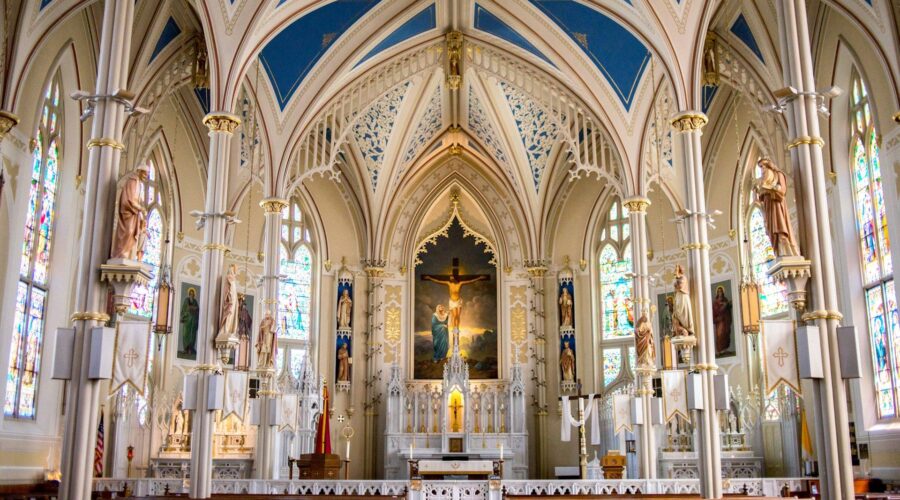
KP Yohannan: A Visionary Leader in Global Missions
Early Life and Call to Ministry
KP Yohannan, born in 1938 in India, experienced firsthand the plight of the marginalized. Haunted by the faces of the poor and forgotten, he felt a profound call to serve the least reached with the gospel.
Founding Gospel for Asia
In 1978, Yohannan founded Gospel for Asia (GFA), an international mission organization dedicated to reaching the unreached. GFA’s mission is to bring the transformative power of the gospel to the most impoverished and unreached people groups in Asia.
Bridge of Hope: A Holistic Approach
GFA’s Bridge of Hope program takes a holistic approach to alleviating poverty and transforming lives. It includes:
- Child sponsorship and education
- Healthcare and medical assistance
- Community development and job creation
- Disaster relief and emergency aid
- Spiritual care and discipleship
Empowering National Missionaries
Yohannan believed that the best people to reach their own people were indigenous nationals. GFA focuses on recruiting, training, and empowering national missionaries to lead the work of evangelism and community development.
Global Impact
GFA’s ministry has had a significant impact on communities across Asia. The organization has:
Impact Number Churches planted 54,000+ Children sponsored 1.7 million+ Schools established 10,000+ Medical outreaches conducted 5,000+ per year Discipleship programs completed 1 million+ Recognition and Awards
Yohannan’s leadership and impact have been widely recognized. He has received numerous awards, including:
- National Religious Broadcaster’s Hall of Fame
- Evangelical Christian Publishers Association Lifetime Achievement Award
- Billy Graham Center Award for Outstanding Christian Leadership
Legacy and Impact
KP Yohannan’s legacy as a visionary leader in global missions will continue to inspire generations to come. His passion for reaching the unreached, empowering national missionaries, and transforming communities has left an indelible mark on the world.
How to Support
There are several ways to support the work of Gospel for Asia and KP Yohannan’s mission:
Conclusion
KP Yohannan is a testament to the transformative power of the gospel. His unwavering commitment to reaching the unreached, empowering national missionaries, and alleviating poverty has brought hope and light to countless communities around the world. May his legacy continue to inspire us to serve the least of these in our own spheres of influence.
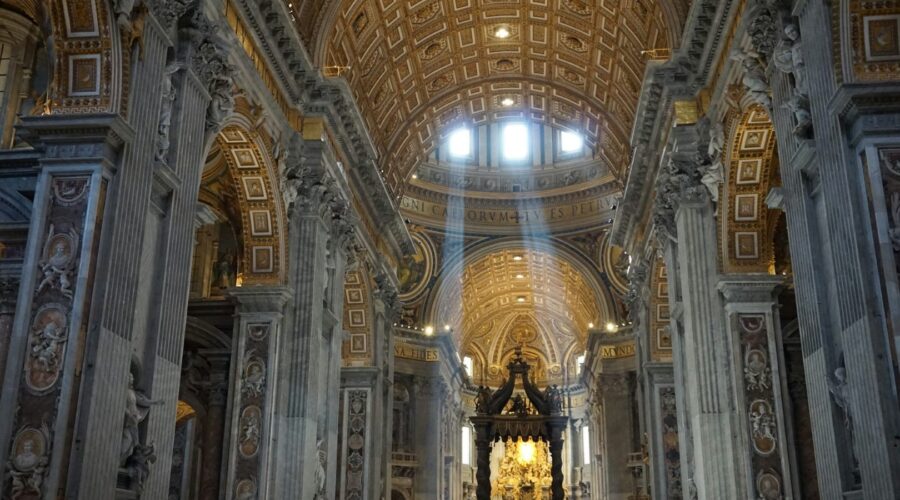
Discover the Disciples of Christ: A Journey of Christian Faith
Introduction
The Disciples of Christ, also known as the Christian Church (Disciples of Christ), is a Protestant denomination with a rich history and vibrant faith. As one of the largest Protestant denominations in the United States, the Disciples of Christ have played a significant role in American religious life and continue to be a force for good in the world.
In this comprehensive blog post, we will explore the key aspects of the Disciples of Christ, including their history, beliefs, practices, and organization. Whether you are a member of the Disciples of Christ, considering joining, or simply curious about this fascinating denomination, this guide will provide you with the information you need.
History
The Disciples of Christ trace their roots to the Second Great Awakening, a religious revival that swept through the United States in the early 19th century. In 1809, Thomas Campbell and his son, Alexander, founded the Brush Run Church in Kentucky, which became the first congregation of what would later become the Disciples of Christ.
The Campbells sought to restore primitive Christianity, emphasizing the importance of the Bible, baptism by immersion, and the Lord’s Supper. They also rejected the idea of a creedal subscription, believing that each individual should interpret the Bible for themselves.
Over time, the Disciples of Christ grew and spread throughout the United States, largely through the efforts of Barton W. Stone and Isaac Errett. By the end of the 19th century, the Disciples of Christ had become a major Protestant denomination.
Beliefs
The Disciples of Christ are a Christian denomination that holds to the following core beliefs:
- The Bible is the inspired and authoritative word of God.
- Jesus Christ is the Son of God and the savior of humanity.
- Baptism by immersion is the only valid form of baptism.
- The Lord’s Supper is a memorial of Christ’s death and resurrection.
- All Christians are called to live a life of love and service.
The Disciples of Christ emphasize the importance of unity among Christians. They believe that all Christians should come together in fellowship and service, regardless of their differences in belief.
Practices
The Disciples of Christ practice a simple and straightforward form of worship. Their worship services typically include singing, prayer, scripture reading, and a sermon. The Lord’s Supper is celebrated on a regular basis.
The Disciples of Christ also emphasize the importance of mission and outreach. They believe that Christians are called to share the gospel with the world and to serve those in need.
Organization
The Disciples of Christ are organized into a national body known as the Christian Church (Disciples of Christ). The Christian Church (Disciples of Christ) is headquartered in Indianapolis, Indiana.
The Christian Church (Disciples of Christ) is divided into regions and districts. Each region and district is responsible for overseeing the churches within its territory.
Conclusion
The Disciples of Christ are a vibrant and growing Protestant denomination with a rich history and a deep commitment to following Jesus Christ. They emphasize the importance of the Bible, baptism by immersion, the Lord’s Supper, and Christian unity. They also believe that Christians are called to live a life of love and service.
If you are looking for a Christian denomination that is committed to following Jesus Christ and serving others, the Disciples of Christ may be the right fit for you.
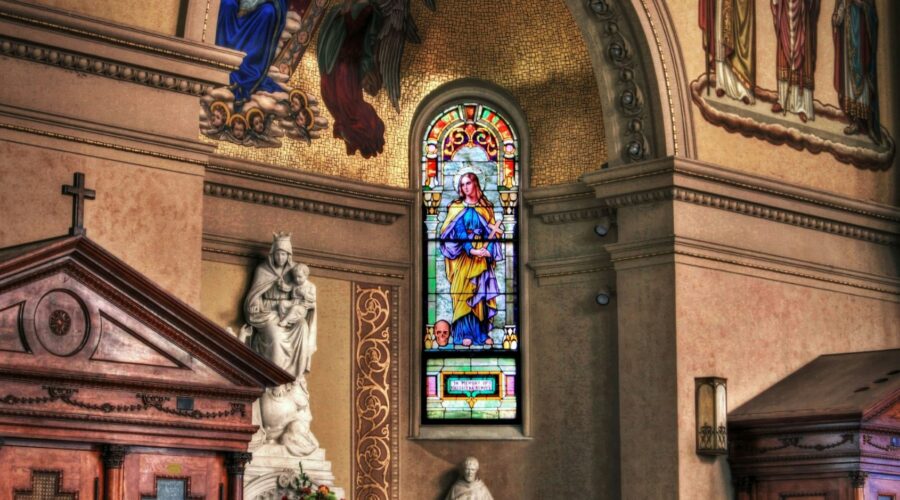
Unveiling the Impact of Harvest Ministries: A Guide to Their Mission, Vision, and Services
Introduction
Harvest Ministries is a global Christian organization dedicated to spreading the Gospel and transforming lives worldwide. Founded by renowned evangelist Greg Laurie, Harvest Ministries has played a pivotal role in impacting millions of people through its vibrant worship services, compelling crusades, and life-changing discipleship programs.
Mission and Vision
Mission Statement:
“To evangelize the lost, equip the saved, and establish believers in Christ through the power of the Gospel.”
Vision Statement:
“To see a generation rise up with a passion for Jesus Christ and a commitment to His Word.”
Core Values
Harvest Ministries operates based on several core values that guide its mission and activities:
- Biblical Authority: Holding the Bible as the ultimate source of truth and authority for faith and practice.
- Evangelism: Prioritizing the proclamation of the Gospel message to reach the lost and bring them to Christ.
- Discipleship: Equipping and nurturing believers to grow in their faith, knowledge, and maturity.
- Worship: Engaging in vibrant and Spirit-led worship that exalts God and edifies believers.
- Compassion: Extending practical care and assistance to those in need, demonstrating Christ’s love in action.
Key Services and Programs
1. Crusades:
Harvest Ministries hosts large-scale crusades around the world, where Greg Laurie shares the Gospel message, leads thousands to salvation, and encourages believers to grow in their faith.
2. Television and Radio Broadcasts:
Through its “Harvest at Home” program, Harvest Ministries reaches millions of viewers and listeners through television and radio broadcasts, providing biblical teachings, sermons, and interviews.
3. Online Discipleship Resources:
Harvest Ministries offers a range of online resources, including Bible studies, devotionals, and online courses, to support believers in their spiritual growth and discipleship journey.
4. Prayer Ministry:
A dedicated prayer team intercedes for individuals and requests, providing spiritual support and encouragement to those in need.
5. Compassion ministries:
Harvest Ministries extends a helping hand through various compassion initiatives, such as providing food and shelter to the homeless, supporting orphanages, and engaging in disaster relief efforts.
Impact and Achievements
1. Global Reach:
Harvest Ministries has touched lives in over 150 countries through its crusades, broadcasts, and online resources.
2. Millions Reached:
Over the years, Harvest Ministries has led millions of people to receive Jesus Christ as their Savior.
3. Church Planting and Discipleship:
Harvest Ministries supports local churches through church planting initiatives and provides mentorship and resources for pastors and leaders.
4. Community Transformation:
Through its compassion ministries, Harvest Ministries has made a tangible impact in communities worldwide, addressing issues such as poverty, homelessness, and disaster relief.
How to Get Involved
There are multiple ways to connect with Harvest Ministries and contribute to its mission:
- Attend a Crusade: Experience the power of the Gospel firsthand at a Harvest Ministries crusade.
- Tune in to Broadcasts: Watch or listen to Greg Laurie’s sermons and teachings through television or radio broadcasts.
- Utilize Online Resources: Access online Bible studies, devotionals, and courses for personal and spiritual growth.
- Support Prayer Ministry: Join the prayer team and intercede for the needs of others.
- Participate in Compassion Initiatives: Volunteer or donate to support Harvest Ministries’ compassion ministries.
Conclusion
Harvest Ministries stands as a beacon of hope in the world, fulfilling its mission of evangelizing the lost, equipping the saved, and establishing believers in Christ. Through its impactful services, global reach, and commitment to biblical truth, Harvest Ministries continues to touch lives and transform communities worldwide. Whether you are seeking spiritual growth, seeking to connect with a community of faith, or looking for ways to make a difference in the world, Harvest Ministries invites you to join in its mission of sharing the Gospel and making a lasting impact.
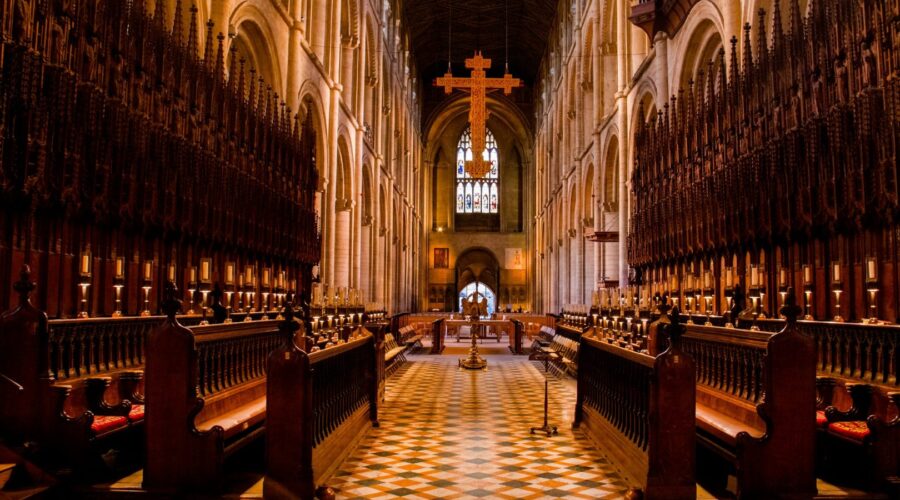
Welcome to Westside Church: A Journey of Faith and Community
About Westside Church
Westside Church is a vibrant and growing congregation located in the heart of Anytown, California. Established in 1955, our mission is to connect with the community, inspire spiritual growth, and serve others.
We are a welcoming and inclusive church, open to people from all backgrounds and walks of life. We believe that faith should be accessible to all, and we strive to create a space where everyone feels loved, accepted, and empowered.
Our Beliefs
- We believe in the Triune God: Father, Son, and Holy Spirit.
- We believe that Jesus Christ is the only way to salvation.
- We believe that the Bible is the inspired and authoritative Word of God.
- We believe that the Church is the Body of Christ on earth.
- We believe that every person is created in the image of God and has unique gifts and abilities.
Our Values
- Love: We prioritize love in all that we do, extending compassion and kindness to others.
- Grace: We believe in the transformative power of grace, offering forgiveness and acceptance to all.
- Community: We value the importance of community, creating a sense of belonging and support.
- Service: We are committed to serving our community and making a difference in the world.
- Excellence: We strive for excellence in all aspects of our ministry, aiming to glorify God and inspire others.
Our Ministries
We offer a wide range of ministries to meet the spiritual, emotional, and social needs of our congregation and community.
Worship Services
We offer two weekly worship services on Sundays at 9:00am and 11:00am. Our services include a blend of traditional and contemporary music, inspiring messages, and opportunities for prayer and fellowship.
Small Groups
Small groups are the heart of our church community. These groups provide a smaller setting for spiritual growth, support, and accountability.
Children’s and Youth Ministries
We have a vibrant children’s ministry for ages 0-12 and a thriving youth ministry for ages 13-18. Our programs include age-appropriate Bible lessons, games, music, and service opportunities.
Adult Education
We offer a variety of adult education classes throughout the week, covering topics such as Bible study, theology, and spiritual growth.
Community Outreach
We are committed to serving our community beyond the walls of our church. We partner with local organizations to provide food, clothing, and other assistance to those in need.
Our Leadership
Our church is led by a dedicated team of pastors and staff members who are passionate about serving God and our congregation.
Pastor John Smith
Pastor John Smith is the Senior Pastor of Westside Church. He has a deep love for the Word of God and a heart for people. He is a gifted teacher and a compassionate shepherd.
Associate Pastor Mary Jones
Associate Pastor Mary Jones oversees our children’s and youth ministries. She is passionate about reaching the next generation and equipping them to live for Christ.
Elder Team
Our Elder Team is made up of mature and experienced members of our congregation who provide spiritual guidance and oversight to the church leadership.
Connect with Us
We invite you to connect with us and experience the vibrant community of Westside Church. You can find us at [address] or visit our website at [website].
Contact Information
- Phone: [phone number]
- Email: [email address]
We would love to answer any questions you have and help you find your place in our church family.
Conclusion
Westside Church is a place where you can connect with God, grow in your faith, and serve others. We are a welcoming, inclusive community that is committed to making a difference in the world.
We invite you to experience the Westside difference today.
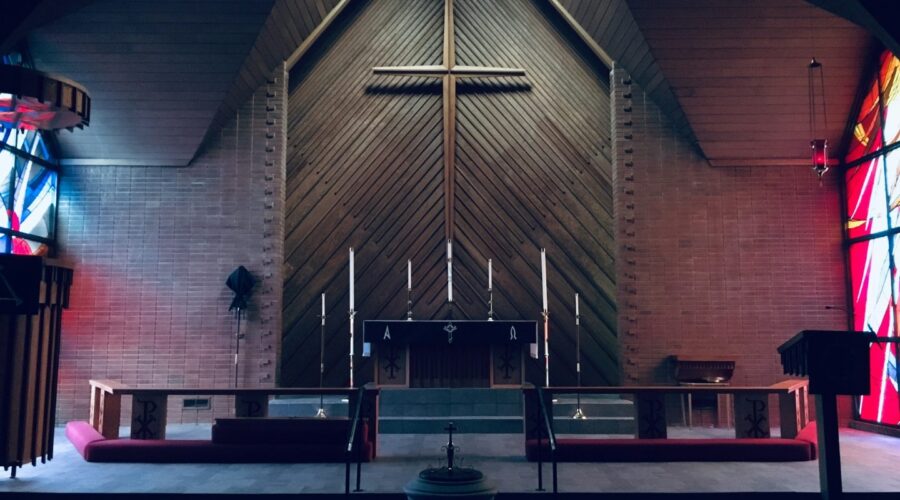
Unveiling the Ecclesiastical Tapestry: A Comprehensive Guide to Vestments
Introduction
Vestments, the sacred garments worn by clergy during religious ceremonies, hold immense symbolic significance within various faiths. From the ornate robes of the Catholic Church to the modest attire of Quaker ministers, vestments reflect the beliefs, traditions, and hierarchy of different religious groups. This definitive guide delves into the history, symbolism, and practical applications of vestments, offering a comprehensive understanding of their profound spiritual and cultural significance.
Historical Origins
Ancient Roots
The use of vestments can be traced back to ancient times, where priests and religious figures adorned themselves with distinctive garments to distinguish their roles and signify their connection to the divine. In the early Christian Church, vestments evolved from the clothing of Roman and Jewish officials, reflecting the influence of both cultures.
Medieval Elaboration
During the Middle Ages, vestments became increasingly elaborate, with intricate embroidery, gemstones, and rich fabrics. This embellishment served to enhance the ceremonial grandeur of religious rituals and reflect the growing wealth and power of the Church.
Symbolism and Meaning
Sacred Attire
Vestments are not merely garments but sacred attire that symbolizes the role of the wearer as a mediator between the divine and the human. They represent the authority and dignity bestowed upon clergy and the purity and holiness required for conducting religious ceremonies.
Liturgical Significance
The different colors and styles of vestments vary according to the liturgical season and the specific ceremony being performed. For example, white is often worn during festivals and joyful occasions, while purple signifies penitence and mourning. These liturgical distinctions serve to enhance the spiritual atmosphere and emphasize the significance of the occasion.
Types of Vestments
Catholic Church
- Alb: A long, white linen garment worn by all clergy and altar servers.
- Chasuble: An outer vestment worn by priests and bishops, typically made of rich fabrics and adorned with embroidery.
- Dalmatic: A shorter, wide-sleeved vestment worn by deacons.
- Cope: A flowing, semi-circular cloak worn over other vestments during processions and certain ceremonies.
Anglican Communion
- Surplice: A white linen garment similar to the alb, worn by priests, deacons, and choir members.
- Chasuble: Also worn by Anglican priests, though it may be plainer than its Catholic counterpart.
- Cassock: A long, black garment worn by clergy outside of church services.
Other Christian Denominations
- Clerical Collar: A detachable white collar worn by clergy in denominations such as Presbyterian, Methodist, and Lutheran.
- Stole: A long, narrow band of fabric worn around the neck and over the shoulders, symbolizing the authority of the wearer.
- Cassock: Also worn by clergy in various denominations, though the style may differ from that of the Anglican Church.
Practical Considerations
Material and Design
Vestments are typically made from high-quality fabrics such as silk, linen, or velvet. The design and ornamentation vary depending on the tradition and resources of the religious institution. While some vestments are simple and unadorned, others are lavishly decorated with embroidery, gemstones, and other embellishments.
Wearing and Maintenance
Vestments are worn according to specific liturgical guidelines and should be handled with respect and care. They are cleaned and repaired by skilled artisans to ensure their longevity and suitability for liturgical use.
Cultural Significance
Beyond their religious symbolism, vestments have also played a significant role in art, history, and culture. They have been depicted in countless paintings, sculptures, and other works of art, showcasing the richness and beauty of religious traditions. Moreover, vestments have influenced secular fashion and design, with elements such as embroidery and draping inspiring designers and style enthusiasts.
Conclusion
Vestments are an integral part of religious ceremonies and rituals, embodying the sacred and symbolic aspects of faith. From their ancient origins to their intricate designs and profound meanings, they continue to captivate and inspire believers and non-believers alike. This comprehensive guide has delved into the history, symbolism, types, and practical considerations of vestments, providing a deeper understanding of their cultural and spiritual significance.
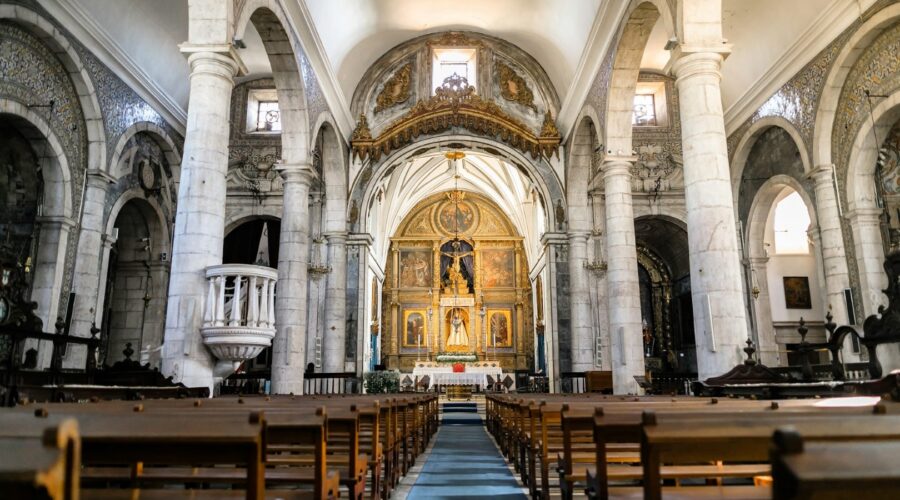
Discover the Grace of Grace Baptist Church: A Beacon of Faith and Community
About Grace Baptist Church
Established in the heart of [city], Grace Baptist Church has been a cornerstone of the community for over [number] years. Our mission is to lead people to a personal relationship with Jesus Christ and to nurture them in their Christian faith. Our church is a vibrant and welcoming community, committed to serving others and sharing the love of God.
Our Beliefs
- We believe in the Bible as the inspired and inerrant Word of God.
- We believe in the Trinity: the Father, the Son, and the Holy Spirit.
- We believe in the deity of Jesus Christ, His virgin birth, His sinless life, His substitutionary death and resurrection, and His bodily ascension to Heaven.
- We believe in the salvation of sinners by grace through faith in Jesus Christ alone.
- We believe in the Holy Spirit’s indwelling and empowering of believers.
Our Mission
- Evangelism: We strive to share the gospel with our community and beyond.
- Discipleship: We nurture the spiritual growth of believers through Bible study, prayer, and mentoring.
- Fellowship: We build strong community bonds through regular gatherings, Bible studies, and small group meetings.
- Ministry: We serve our community through outreach programs, volunteer opportunities, and prayer support.
Worship and Programs
Worship Services
We hold weekly worship services on Sundays at [time]. Our services are filled with uplifting music, inspiring sermons, and opportunities for communion and prayer.
Children’s Ministries
Grace Baptist Church offers a variety of programs for children of all ages, including Sunday School, Awana Clubs, and special events.
Youth Ministries
Our youth group provides a safe and supportive environment for teenagers to learn about God, connect with peers, and develop their faith.
Adult Ministries
We offer a range of adult ministries, such as Bible studies, small groups, and service opportunities, to help members grow in their faith and connect with others.
Events and Outreach
Grace Baptist Church regularly hosts special events and outreach programs, including:
- Community dinners and clothing drives
- Missions trips to support ministries around the world
- Outreach events at local hospitals and shelters
- Prayer walks and neighborhood gatherings
Get Involved
We invite you to join our church family and experience the grace and love of God. Here are some ways you can get involved:
- Attend a worship service
- Connect with our ministries through our ministries page
- Volunteer your time and talents
- Support our outreach programs
Contact Information
Address: [Church Address] Phone: [Phone Number] Email: [Email Address] Website: gracebaptist.com We are located at [address] in [city]. Our friendly staff is available to answer your questions and help you connect with our community. Contact us today and experience the grace of God at Grace Baptist Church.
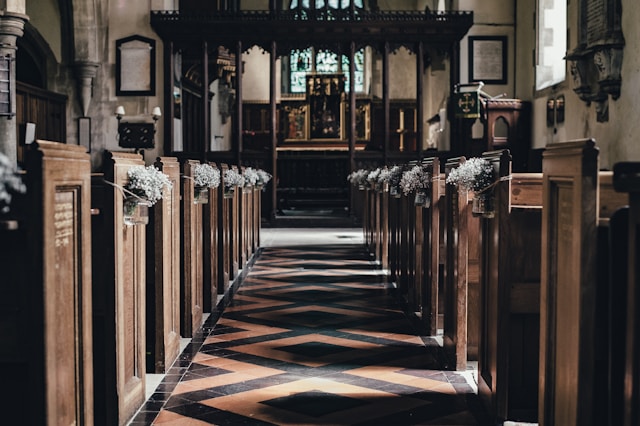
Unveiling the Rich History and Significance of the Roman Catholic Bible
Introduction
The Roman Catholic Bible, a profound collection of sacred texts, holds immense significance in the lives of Catholics worldwide. Its origins trace back centuries, and its influence has shaped religious, cultural, and historical landscapes.
The Canon of the Roman Catholic Bible
Old Testament
- The Old Testament comprises 39 books, primarily written in Hebrew.
- It includes the Torah (the first five books attributed to Moses), historical accounts, poetry, and prophetic writings.
- The Catholic Bible includes additional books known as the Deuterocanonical books (e.g., Tobit, Judith, Maccabees), not present in the Protestant canon.
New Testament
- The New Testament consists of 27 books, primarily written in Greek.
- It records the life, teachings, death, and resurrection of Jesus Christ.
- It includes Gospels (accounts of Jesus’ life), Acts (the early church’s history), Epistles (letters from apostles), and Revelation (apocalyptic visions).
The Process of Canonization
The Roman Catholic Church did not officially establish the canon of the Bible until the Council of Trent (1546). Prior to this, there was a gradual process of recognition and acceptance of certain texts as authoritative.
Various criteria were used to determine canonicity, including:
- Apostolic origin or connection
- Universal reception and use
- Concordance with the teachings of the early Church
The Interpretation of the Bible
The Roman Catholic Church holds that the Bible is the inspired Word of God and should be interpreted in accordance with its official teachings and traditions.
Two primary methods of interpretation are employed:
- Literal interpretation: Taking the text at face value, focusing on its historical and grammatical meaning.
- Spiritual interpretation: Seeking deeper allegorical or symbolic meanings beyond the literal text, often drawing on Church teachings.
The Role of the Bible in Catholic Life
The Roman Catholic Bible serves multiple roles in the lives of Catholics:
- Sacred Scripture: It is the authoritative account of God’s revelation and the basis for Catholic doctrine and practice.
- Guide for Faith and Morality: Its teachings provide guidance in spiritual matters, ethical decision-making, and personal conduct.
- Source of Inspiration: The Bible’s stories, parables, and poetry inspire Catholics, fostering their relationship with God.
Liturgical Use: Bible readings are integral to liturgies such as Mass and other sacraments.
Versions and Translations
The Roman Catholic Bible has been translated into numerous languages throughout history.
Notable translations include:
- Vulgate: An ancient Latin translation from the 4th century, commissioned by Pope Damasus I.
- Douay-Rheims Bible: A 16th-century English translation from the Vulgate.
- New American Bible: A modern English translation from the original languages, completed in 1986.
Preservation and Conservation
The Roman Catholic Church has taken great care to preserve and conserve the Bible over the centuries.
- Manuscripts and Codices: Ancient handwritten copies of the Bible are preserved in libraries and museums worldwide.
- Digital Preservation: Modern technologies are used to digitize and archive Bible texts for future generations.
- Restoration and Conservation: Experts work to repair and preserve damaged or aging Bibles.
Conclusion
The Roman Catholic Bible is a profound and enduring testament to the faith and beliefs of millions of Catholics worldwide. Its words continue to inspire, guide, and shape the lives of believers, providing a rich and enduring connection to the divine.
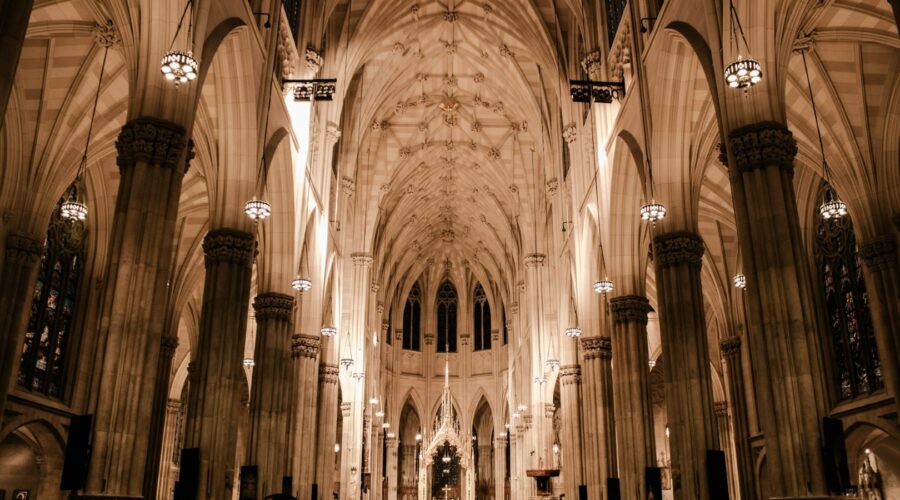
Discover Korean Churches Near You: A Comprehensive Guide
Introduction
For individuals and families seeking spiritual fulfillment and connection with the Korean community, locating a Korean church nearby can be a crucial need. This comprehensive guide will delve into the various aspects of finding Korean churches near you, providing valuable information, tips, and resources to assist you in your search.
Types of Korean Churches
Korean churches encompass a diverse range of denominations and worship styles. Here are some of the most common types:
- Presbyterian
- Methodist
- Baptist
- Pentecostal
- Charismatic
- Non-denominational
Finding Korean Churches Near You
There are several methods for locating Korean churches in your vicinity:
Online Directories
Various online directories provide listings of Korean churches worldwide. Some popular options include:
Local Korean Community Centers
Korean community centers often serve as hubs for finding churches and other community resources. Contact local centers to inquire about Korean churches in the area.
Social Media and Online Forums
Join relevant Facebook groups or online forums for Korean communities. These platforms allow you to connect with members and ask for recommendations.
Factors to Consider When Choosing a Korean Church
When selecting a Korean church, consider these factors:
Denomination and Worship Style
Identify the denomination and worship style that aligns with your beliefs and preferences.
Language Services
Determine if the church provides English translation or interpretation services, especially if Korean is not your primary language.
Community Involvement
Inquire about the church’s involvement in community outreach programs or social events.
Location and Accessibility
Consider the proximity of the church to your residence and its accessibility by public transportation or personal vehicle.
Additional Tips for Finding a Korean Church Near You
Here are some additional tips to facilitate your search:
- Contact the Korean embassy or consulate in your region for their recommended churches.
- Attend Korean cultural events or festivals to connect with potential church members.
- Use Google Maps or other navigation apps to search for Korean churches nearby.
Korean Churches and Community
Korean churches play a significant role in the lives of many Korean communities. They offer spiritual guidance, social support, and a sense of belonging. Many Korean churches also organize cultural events, language classes, and youth programs to foster community and cultural preservation.
Conclusion
Finding a Korean church near you can be a rewarding experience, providing a spiritual home and a connection to the Korean community. By using the resources and tips outlined in this guide, you can effectively locate Korean churches in your area and find the one that best suits your individual needs.
Frequently Asked Questions (FAQs)
Q: What are the benefits of attending a Korean church?
A: Attending a Korean church can provide spiritual fulfillment, a sense of community, cultural immersion, and language support.
Q: How do I get involved in a Korean church?
A: Attend services regularly, introduce yourself to the pastor or church leaders, and participate in community events or outreach programs.
Q: What resources are available for Korean churches?
A: Online directories, local Korean community centers, and social media platforms offer valuable resources for finding and connecting with Korean churches.
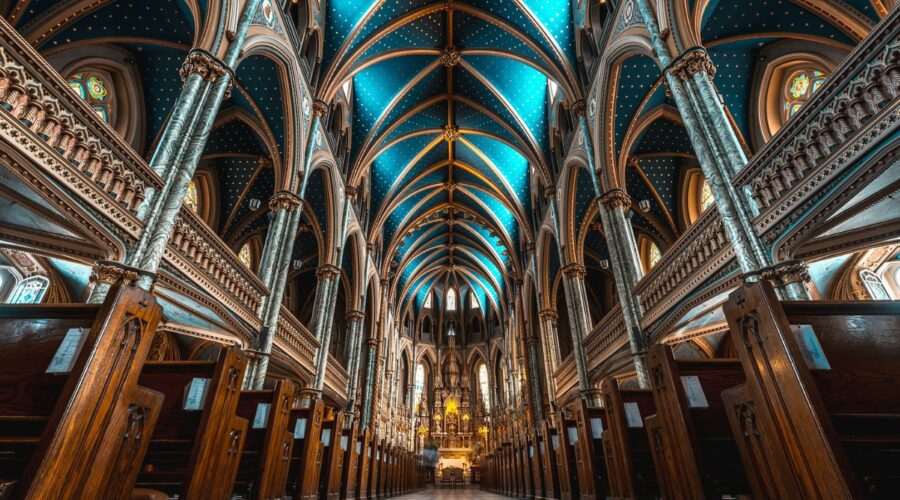
Discover Unitarian Churches Near You: A Guide to Finding Community and Inspiration
Unveiling the Essence of Unitarianism
Unitarian churches offer a unique and inclusive spiritual experience. Rooted in reason, compassion, and a deep respect for the diverse expressions of human faith, Unitarianism fosters a vibrant community where individuals can explore their beliefs freely. Unlike many traditional churches, Unitarian churches do not adhere to a specific creed or dogma. Instead, they encourage open-minded inquiry, ethical living, and a commitment to social justice.
Core Beliefs of Unitarianism
* The inherent worth and dignity of every individual
* The power of reason and critical thinking
* The importance of compassion, empathy, and social responsibility
* The search for truth and meaning through ongoing inquiry
* The diversity of religious and spiritual experiencesFinding a Unitarian Church Near You
Locating a Unitarian church in your vicinity is a breeze with the resources available online and within your community.
Online Directories
* Unitarian Universalist Association: https://www.uua.org/find
* Unitarian Universalist Fellowship Directory: https://www.uufellowshipdirectory.org/Local Resources
* Community centers and libraries
* Religious organizations and interfaith councils
* Local newspapers and community calendars
* Search engines (using keywords like “Unitarian church near me”)Exploring Unitarian Churches
Once you have identified a few potential churches, take the time to explore them further. Here are some tips:
Attend Services
Visit the churches during their regular services to experience the atmosphere and meet the congregation.
Engage with Members
Introduce yourself to the minister or other members after the service. Ask questions and share your spiritual journey.
Review Church Publications
Examine the church’s website, newsletter, and other materials to gain insights into their programs, beliefs, and community activities.
Consider Your Values
Reflect on your spiritual beliefs and values. Do they align with the teachings and practices of the Unitarian church?
Benefits of Unitarian Church Membership
Joining a Unitarian church can enrich your spiritual life and offer numerous benefits:
Community and Belonging
* Find a welcoming and supportive community of like-minded individuals who value diversity and inclusivity.
* Participate in social events, discussion groups, and community service initiatives.Spiritual Growth and Exploration
* Engage in open-minded discussions about religion, spirituality, and the meaning of life.
* Attend lectures, workshops, and retreats to deepen your understanding of Unitarianism and other worldviews.Social Justice and Activism
* Join a community that actively works towards social justice and equality.
* Participate in community outreach programs, advocacy campaigns, and interfaith collaborations.Ethical Living and Decision-Making
* Find guidance and support for ethical decision-making based on reason, compassion, and a commitment to the common good.
* Engage in conversations about contemporary social issues and their impact on individuals and society.Conclusion
Embarking on a spiritual journey with a Unitarian church can be a transformative experience. By locating a church near you and exploring its offerings, you can discover a community that embraces diversity, fosters open inquiry, and empowers individuals to live ethical and meaningful lives. Whether you are seeking a spiritual home or a vibrant community to connect with, Unitarian churches offer a welcoming and inclusive space for all.
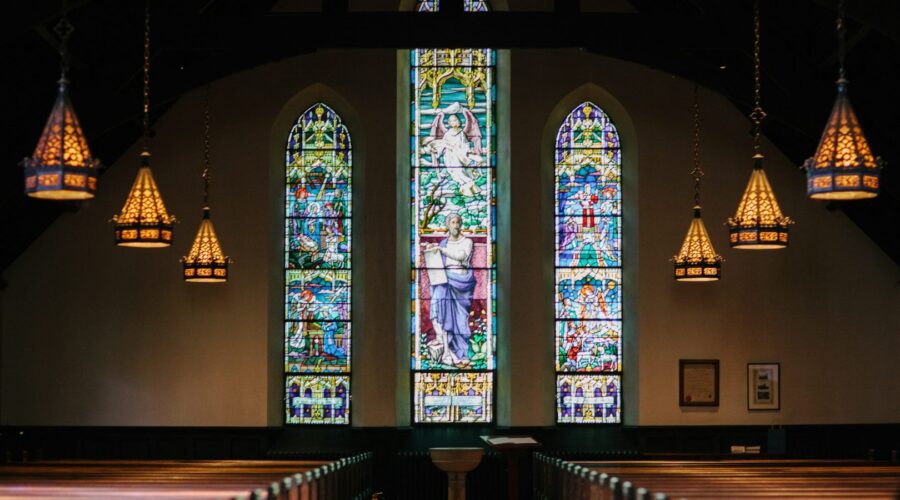
Unveiling the United Methodist Church: A Comprehensive Guide
Introduction
The United Methodist Church (UMC) is a global denomination that emerged from the merger of The Methodist Church and the Evangelical United Brethren Church in 1968. With a presence in over 130 countries, it boasts a vast membership of approximately 12 million people. This article aims to provide an in-depth exploration of the history, beliefs, and practices of the United Methodist Church.
History
Origins and Formation
The roots of the UMC can be traced back to the 18th century Evangelical Revival led by John Wesley. Wesley’s emphasis on personal faith, holiness, and social justice played a pivotal role in the development of Methodism. In the United States, Methodism gained traction in the 19th century, with the formation of the Methodist Episcopal Church, Methodist Church South, and African Methodist Episcopal Church.
Union Movements
Over the years, there were several attempts to unite different Methodist denominations. The Evangelical United Brethren Church was formed in 1815 by merging two German denominations. In 1939, the Methodist Episcopal Church, Methodist Protestant Church, and Methodist Episcopal Church South united to form The Methodist Church.
The United Methodist Church
In 1968, The Methodist Church and the Evangelical United Brethren Church finally merged to form the United Methodist Church. This merger created a denomination with a diverse membership and a global reach.
Beliefs and Doctrines
The UMC adheres to the Wesleyan Quadrilateral, a framework for theological decision-making that emphasizes:
- Scripture
- Tradition
- Reason
- Experience
Core Beliefs
The UMC holds the following core beliefs:
- God is a Trinity (Father, Son, and Holy Spirit)
- Jesus Christ is the Son of God and the Savior of the world
- The Holy Spirit is the presence and power of God in the world
- The Bible is the inspired Word of God
- All people are created in the image of God and have inherent worth
- Salvation is a gift of God through faith in Jesus Christ
Practices
Worship
UMC worship services are characterized by a blend of traditional and contemporary elements. They typically include singing, prayers, Scripture reading, and a sermon.
Sacraments
The UMC recognizes two sacraments:
- Baptism: A sign of initiation into the Christian faith
- Holy Communion (also known as the Lord’s Supper or Eucharist): A remembrance of Jesus’ death and resurrection
Church Governance
The UMC is a connectional church, meaning that it operates on a system of shared ministry and accountability. The church is governed by a General Conference, which meets every four years to make decisions on matters of doctrine, policy, and administration. Regional Conferences and Local Churches also play important roles in governance.
Membership and Mission
Membership
Membership in the UMC is open to all who profess faith in Jesus Christ as Savior and Lord. Membership is typically acquired through baptism, but some may also join by transfer from other churches.
Mission
The mission of the UMC is to “make disciples of Jesus Christ for the transformation of the world.” This mission is carried out through a variety of ministries and programs, including:
- Evangelism and outreach
- Education and discipleship
- Social justice and advocacy
Denominational Structure
The UMC is divided into regions, conferences, districts, and local churches:
- Regions: The church is divided into 5 regions: Africa, Eurasia, Europe, the Philippines, and the United States.
- Conferences: Each region is further divided into annual conferences, which are the primary administrative units of the church.
- Districts: Conferences are subdivided into districts, which are groups of local churches.
- Local Churches: The local church is the basic unit of the UMC. Each local church is led by a pastor and a church council.
Challenges and Controversies
The UMC has faced a number of challenges and controversies in recent years, including:
- Theological Differences: There have been tensions over theological issues such as the ordination of LGBTQIA+ clergy and the role of women in leadership.
- Denominational Split: In 2023, a large group of conservative churches left the UMC to form the Global Methodist Church.
- Declining Membership: Like many other denominations, the UMC has experienced a decline in membership.
Resources and Links
- Official website of the United Methodist Church
- History of the United Methodist Church
- What We Believe
- How We Worship
- Find a United Methodist Church
Conclusion
The United Methodist Church is a complex and diverse denomination that has played a significant role in the history of Christianity and continues to shape the lives of millions of people around the world. While it has faced challenges in recent years, the UMC remains a vital force in the church landscape, known for its commitment to social justice, ecumenicalism, and making disciples of Jesus Christ.